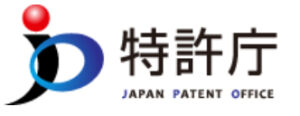"Dejikame" was a registered trademark.
Did you know that "Dejikae" was a registered trademark of Sanyo Electric?
The trademark "Dejikame" was registered until March 27, 2019, but since it was not renewed, the trademark right of the trademark "Dejikame" has now expired.
The registration information for the trademark "Dejikame" is as follows (click to open a new window).
Registration 2122636
The designated products are as follows.
Class 7: Starters, AC motors and DC motors (excluding AC motors and DC motors for land vehicles (excluding their parts)), AC generators, DC generators, household dishwashers, household electric wax polishers, household electric washing machines, household electric vacuum cleaners, electric mixers, electric brushes
Class 8: Electric razors and electric clippers
Class 9: Machinery and equipment for power distribution or control, rotary current converters, phase modifiers, batteries, electric and magnetic measuring instruments, electric wires and cables, electric irons, electric hair curlers, electric buzzers, electric Communications machinery and equipment, electronic machinery and equipment and their parts, magnetic cores, resistance wires, electrodes
Class 10: Home electric massagers
Class 11: Light bulbs and lighting equipment, home electric heating appliances
Class 12: AC or DC motors for land vehicles (excluding their parts)
Class 17: Electrical insulating materials
Class 21: Electric toothbrushes
Note that the registered trademark "Dejikame" does not designate "digital cameras" as a designated good, but does designate its higher-level concept, "telecommunications machinery and equipment."
Why was the trademark "Dejikame" registered?
Why was the trademark "Dejikame" registered?
A generic name or its abbreviation cannot be registered as a trademark (Article 3, Paragraph 1, Item 1 of the Trademark Law).
Nowadays, "Dejikame" is often abbreviated to "degicam", and it can be said that "degicam" is widely used as an abbreviation for "digital camera".
The application date for the trademark "degicam" was April 27, 1985, and the registration assessment date was December 9, 1988.
On December 9, 1988, the registration assessment date, digital cameras had not yet been released.
The first commercially available digital camera was the Casio QV-10, announced on November 14, 1994, and released on March 10, 1995.
In other words, on December 9, 1988, the assessment date for the trademark "Dejikame", it can be said that "degicam" had not yet become a common abbreviation for "digital camera".
A generic name or its abbreviation will not be registered as a trademark (Article 3, Paragraph 1, Item 1 of the Trademark Law), but the judgment date is the time of the examination or trial decision.
If it had been a generic name or its abbreviation at the time of the examination, it would not have been registered, but in the case of the trademark "dejikame" (digital camera), "Dejikame" had not yet become common as an abbreviation for "digital camera" at the time of the examination, so it was registered.
As I wrote in a previous column, trademarks that are not distinctive at the time of the examination will not be registered.
Regarding the failure to register the trademark "Yami Kawaii" - a trademark with no distinctiveness
For more details, please read the above column, but when the word "Yami Kawaii" was invented, it was not widely recognized as a word that indicates the genre of "sick and cute". However, four years after inventing it, the trademark "Yami Kawaii" was applied for, and at the time of the examination, it was widely recognized as a word that indicates the genre, so it was rejected as a trademark with no distinctiveness.
I believe that the trademark "Dejikame" would have been rejected if the application had been filed late and the word had become commonly used as an abbreviation for "Dejikame" at the time of the examination.
If you have thought of a great word, I recommend filing a trademark application before the word becomes commonly used as a common name, an abbreviation, or a word describing a genre.
Regarding the trademark "digicame," if you check the trademark gazette, you will see that USYS Corporation applied for and obtained the trademark rights on April 27, 1985, and then transferred the trademark rights to SANYO Electric Co., Ltd. on November 16, 1998.
Did SANYO Electric think that the trademark "digicame" was valuable and purchase the trademark rights from USYS Corporation?
I don't know the circumstances, but if anyone knows, I would appreciate it if you could let me know.
Trademarks that resemble abbreviations are valuable
As explained above, abbreviations of common names cannot acquire trademark rights, but abbreviation-like trademarks can be registered.
And abbreviation-like trademarks are valuable because they are easy to understand what they are.
The following are examples of abbreviation-like trademarks:
"Cellotape" trademark (Trademark registration number 546229, Trademark owner: Nichiban Co., Ltd.)
"Oiles" trademark (Trademark registration number 0337626, Trademark owner: Oiles Corporation)











